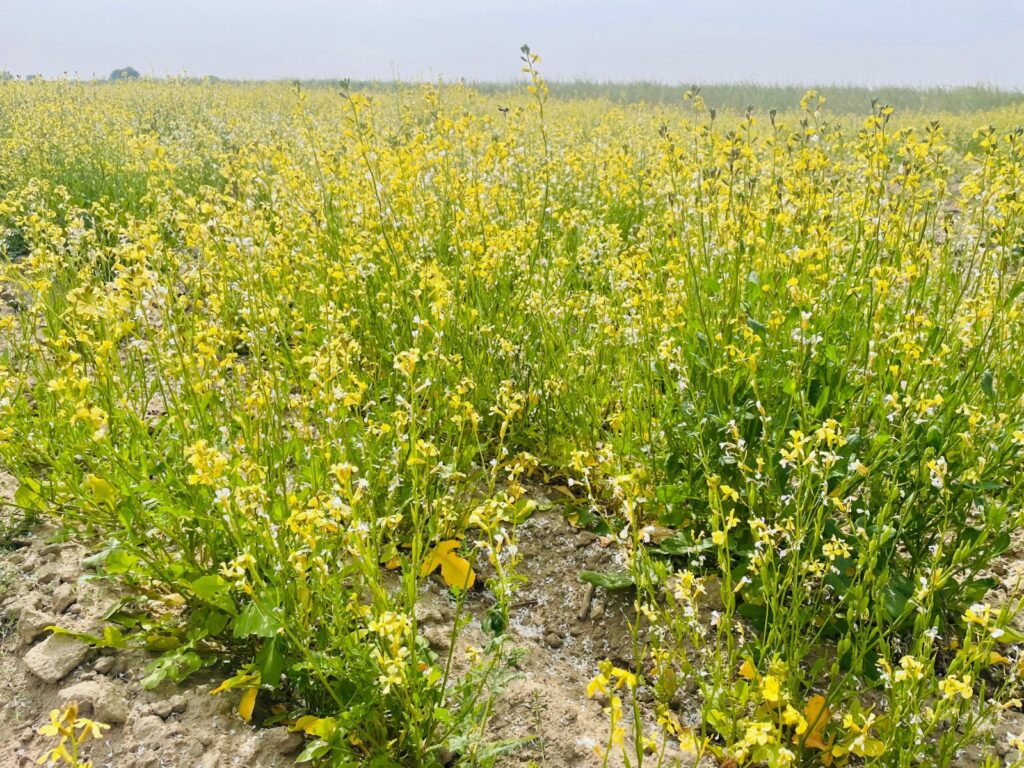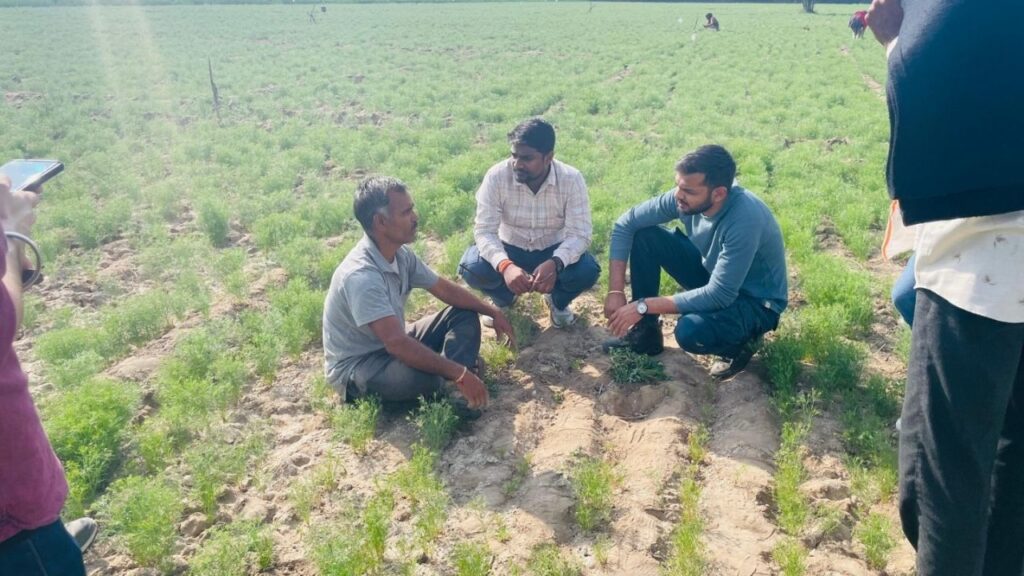Introduction: India, a land of diverse cultures and traditions, has a rich history of agriculture dating back thousands of years. With agriculture being the backbone of its economy, India faces the dual challenge of feeding its burgeoning population while ensuring environmental sustainability. In recent years, organic farming has emerged as a promising alternative to conventional agriculture, offering numerous benefits ranging from environmental conservation to improved health outcomes. This article explores the concept of organic farming in the Indian context, examining its advantages, challenges, and future prospects
Definition and Principles:
Organic farming is a holistic approach to agriculture that emphasizes the use of natural inputs and techniques to enhance soil fertility, promote biodiversity, and produce nutritious crops. It eschews the use of synthetic pesticides, fertilizers, and genetically modified organisms (GMOs), relying instead on practices such as crop rotation, composting, and biological pest control.
Also Read: organic fennel seeds
Regulatory Framework: In India, the National Programme for Organic Production (NPOP) governs the certification and regulation of organic farming practices. Under the NPOP, organic produce must adhere to strict standards set by the Agricultural and Processed Food Products Export Development Authority (APEDA) to qualify for certification
Scope and Scale: Organic farming in India encompasses a wide range of crops, including cereals, pulses, fruits, vegetables, and spices. While the majority of organic farms are small-scale and family-owned, there is also a growing trend of larger commercial enterprises adopting organic practices.
Advantages of Organic Farming:
Organic farming promotes soil health: and fertility through practices such as crop rotation, mulching, and the use of natural fertilizers. By avoiding synthetic pesticides and fertilizers, it reduces the risk of soil and water contamination, mitigating environmental pollution.
Biodiversity Conservation: Organic farms typically support higher levels of biodiversity compared to conventional farms. By eschewing monoculture and promoting the cultivation of diverse crops, organic farming creates habitats for beneficial insects, birds, and microorganisms, enhancing ecosystem resilience. 2.3 Health and Nutrition: Organic produce is free from synthetic chemicals and pesticides, making it safer and healthier for consumers. Studies have shown that organic fruits and vegetables tend to have higher levels of antioxidants, vitamins, and other beneficial nutrients compared to their conventionally grown counterparts. 2.4 Climate Resilience: Organic farming practices such as agroforestry and rainwater harvesting can help farmers adapt to climate change by improving soil moisture retention and reducing vulnerability to extreme weather events. By sequestering carbon in the soil, organic agriculture also contributes to climate mitigation efforts.


Challenges Facing Organic Farming in India:
Lack of Awareness and Infrastructure: Despite the growing interest in organic farming, awareness among farmers and consumers remains limited, particularly in rural areas. Additionally, inadequate infrastructure for organic certification, marketing, and distribution hinders the expansion of the organic sector.
Input Availability and Affordability: Organic inputs such as biofertilizers, organic pesticides, and compost can be expensive and not readily available, especially in remote or resource-constrained regions. This poses a significant barrier to adoption for smallholder farmers with limited financial resources.
3.3 Market Access and Price Premiums:
While demand for organic produce is increasing, organic farmers often struggle to access premium markets due to challenges such as certification costs, market intermediaries, and price volatility. As a result, many farmers receive lower prices for their organic produce compared to conventional counterparts.
Pest and Disease Management: Organic farming relies on natural methods of pest and disease control, which can be less effective than chemical interventions, especially in the short term. Farmers may face challenges in managing pests and diseases without the use of synthetic pesticides, leading to lower yields and economic losses.
Government Initiatives and Support:
National Mission on Organic Farming (NMOF): Launched by the Government of India, the NMOF aims to promote organic farming practices and increase the area under organic cultivation. The mission provides financial assistance, capacity building, and market linkages to organic farmers across the country.
Paramparagat Krishi Vikas Yojana (PKVY): The PKVY scheme promotes traditional and organic farming practices by providing financial support to farmers for the adoption of organic inputs, training, and certification. It prioritizes the development of clusters of organic villages to create synergies and economies of scale.
Export Promotion Schemes: To capitalize on the growing global demand for organic produce, the Government of India offers various export promotion schemes and incentives for organic farmers and exporters. These schemes aim to enhance market access, facilitate certification, and promote Indian organic products on the international stage.
Future Prospects and Recommendations: Scaling Up Organic Farming:
To realize the full potential of organic farming in India, concerted efforts are needed to scale up production, improve infrastructure, and enhance market linkages. This requires greater investment in research and development, extension services, and farmer education.
Strengthening Supply Chains:
Strengthening organic supply chains is essential to ensure fair prices for farmers and reliable access to organic produce for consumers. This involves addressing bottlenecks in certification, storage, transportation, and marketing, as well as promoting direct farmer-consumer linkages.
Promoting Consumer Awareness:
Increasing consumer awareness and demand for organic products is crucial for the long-term growth of the organic sector. Public awareness campaigns, educational programs, and labeling initiatives can help consumers make informed choices and support sustainable agriculture
Encouraging Policy Support: Policy support and incentives play a crucial role in incentivizing the adoption of organic farming practices and creating an enabling environment for organic agriculture to thrive. Policymakers should prioritize sustainable agriculture, allocate adequate resources, and enact supportive policies and regulations.
Conclusion: Organic farming holds great promise as a sustainable alternative to conventional agriculture in India, offering numerous environmental, health, and socioeconomic benefits. While the organic sector continues to face challenges, concerted efforts by government, industry, and civil society stakeholders can help overcome these barriers and unlock the full potential of organic agriculture. By promoting organic farming practices, India can contribute to global efforts to build a more resilient, equitable, and environmentally sustainable food system for future generations.



Organic farming in India is vital, given its benefits for soil health and biodiversity. However, challenges like awareness and input affordability persist. Scaling up production, bolstering supply chains, and raising consumer awareness are critical. Creation Biotech is making commendable contributions to the organic agriculture sector.